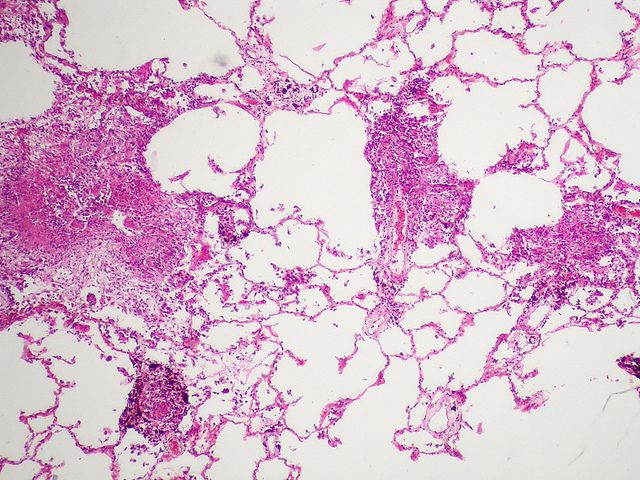Tuberculosis Control Hindered By Drug-Resistant Strains, Underfunded Screening Protocols: WHO

Global tuberculosis (TB) treatment efforts have so far saved the lives of more than 22 million patients worldwide, but the United Nation’s (UN) 2015 target reduction in mortality and incidence rates may still founder on drug-resistant strains and shortcomings in local prevention strategies.
A newly released report from the World Health Organization (WHO) suggests that although TB deaths and infections fell in 2012 to 1.3 million and 8.6 million respectively, the global battle against the disease is not yet won, as almost 3 million cases appears to have gone undiagnosed. Health officials estimate that these “missed” cases currently account for a third of all TB infections. According to Mario Raviglione, WHO director of the Global TB Program and co-author of the Global Tuberculosis Report 2013, 75 percent of these cases originate in 12 countries.
“Quality TB care for millions worldwide has driven down TB deaths,” he said in a press release. “But far too many people are still missing out on such care and are suffering as a result. They are not diagnosed, or not treated, or information on the quality of care they receive is unknown.”
In addition to inadequate screening protocols and prevention strategies, the UN’s goal of a 50 percent reduction in incidence and mortality rates by 2015 is imperiled by the emergence of new, multi-drug resistant TB strains (MDR-TB). The WHO estimates that in 2012 alone, 450,000 fell ill from TB strains that defy conventional treatments. What’s more, a majority of MDR-TB cases do not receive proper diagnoses, leaving many sick patients without care.
“The unmet demand for a full-scale and quality response to multidrug-resistant tuberculosis is a real public health crisis,” Raviglione explaind. “It is unacceptable that increased access to diagnosis is not being matched by increased access to MDR-TB care. We have patients diagnosed but not enough drug supplies or trained people to treat them.”
“The alert on antimicrobial resistance has been sounded; now is the time to act to halt drug-resistant TB,” he added.
WHO concludes its report by identifying five priority actions that would allow the world to achieve the UN Millennium Development Goals (MDGs) for TB by 2015. Besides addressing drug resistance and amending inadequate screening practices, health officials are advised to continue the development of antiretroviral therapy for people co-infected with TB and HIV; to increase domestic and international funding of prevention strategies in low- and middle-income countries; and to accelerate the integration of new technologies and research innovations.



























